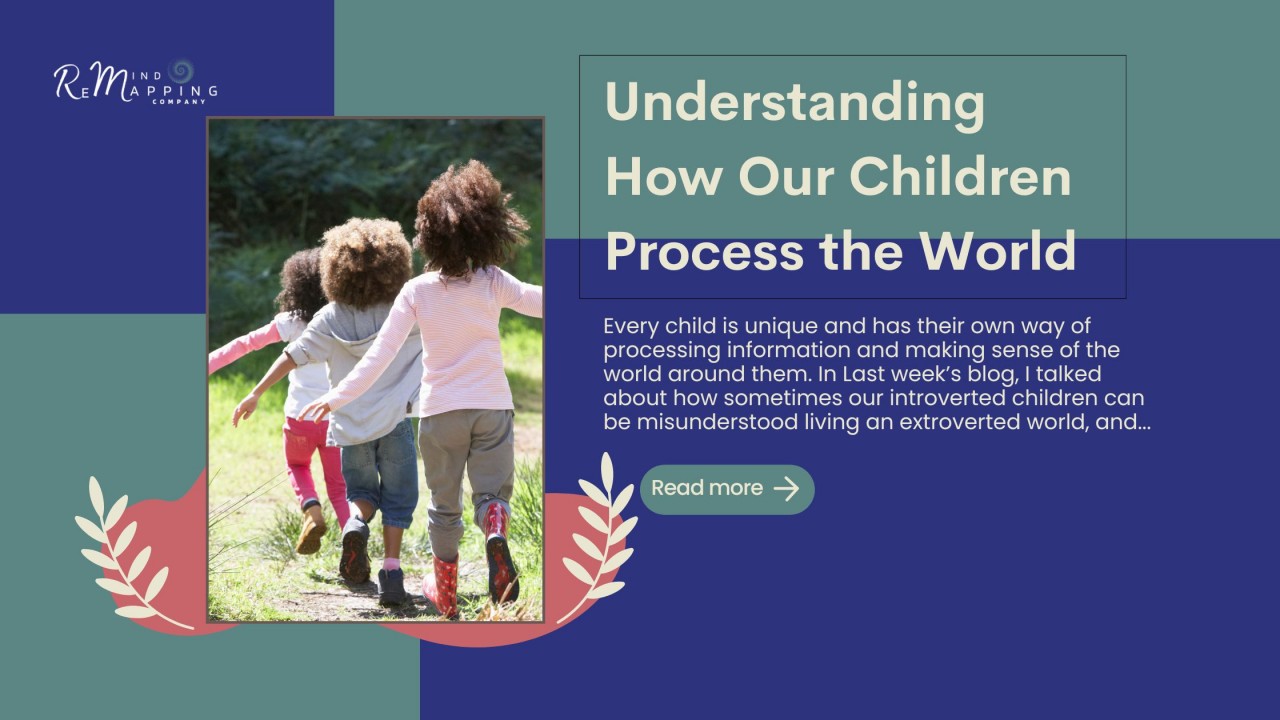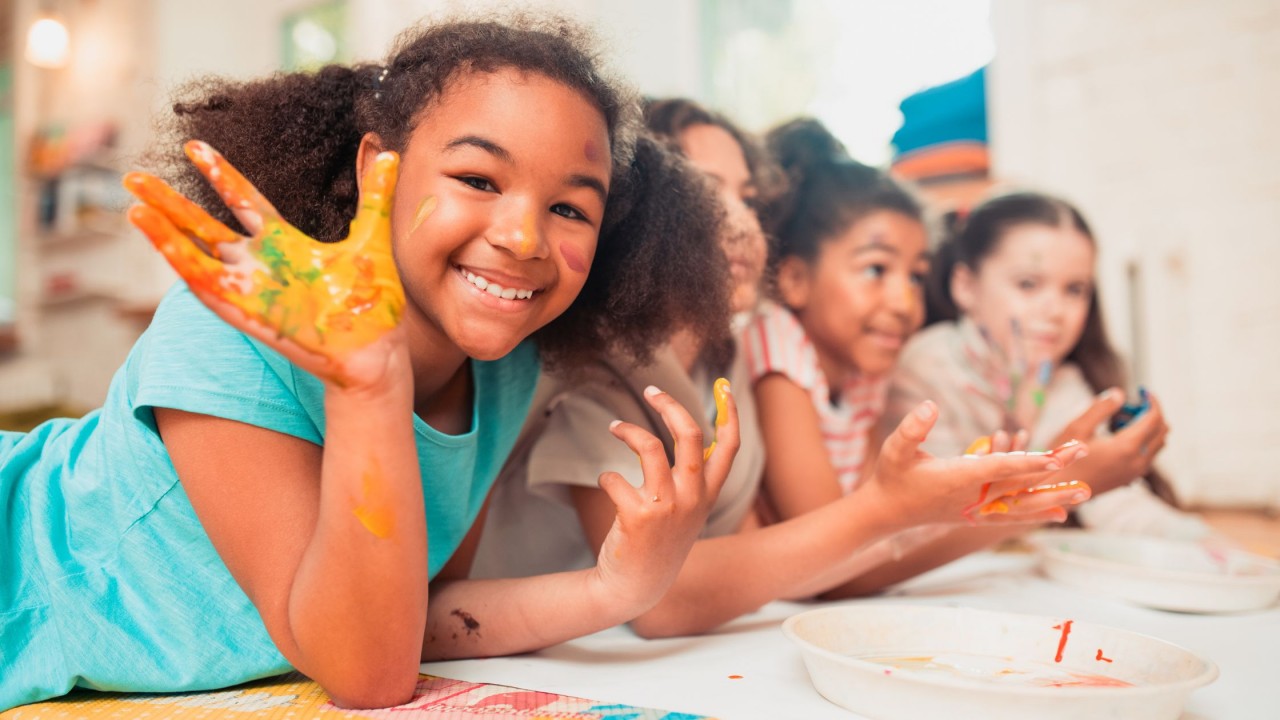(404) 793-0011 | drmaiysha@drmaiysha.com
Understanding How Our Children Process the World
Every child is unique and has their own way of processing information and making sense of the world around them. In Last week's blog, I talked about how sometimes our introverted children can be misunderstood living an extroverted world, and how you can celebrate our introverted children especially if you are an extroverted parent (READ ARTICLE HERE). As we better understand the personalities of our children, we are better able to relate to them both as parents and educators.
While introversion and extroversion looks at how a child recharges and draws energy, the sensor – intuitor personality traits look at how children process and make sense of the world around them. Sensor children are those who prefer concrete, tangible experiences and rely on their five senses to understand the world. They are hands-on learners who enjoy exploring and experimenting with their surroundings. They often have a good memory for details and facts and can recall events with precision. Sensor children are practical and prefer to deal with what is present and real rather than what is abstract.
On the other hand, intuitor children are those who rely on their imagination and intuition to make sense of the world. They often have an inner world that is rich in imagination and ideas. They enjoy abstract concepts and are drawn to theories and ideas that are not necessarily grounded in reality. Intuitor children are creative and innovative thinkers who enjoy exploring new possibilities.
Growing up an introverted, intuitor child I often walked in my own little world. I loved creating through baking, and writing. My most effective form of expression was poetry. It became a way over time that I could express my innermost thoughts. Having a boy whose primary way to experience the world is by hands on experiential learning, I have had to learn how to empower his learning style by thinking of concrete ways to bring both academic and life understanding. While, I growing up, could infer consequences by watching others and imagining what would happen if I were to be in the same situation, my son learns by natural real time consequence. For example, my son used to run down our concrete walkway with stairs, and I often warned him that if he was not careful, he might fall. One day he did. He only sustained a few scratches, but he now walks down that pathway instead of running.
It is very important to recognize the strengths and weaknesses of both sensor and intuitor children. For sensor children, providing hands-on experiences and concrete examples can help them better understand abstract concepts. For intuitor children, allowing them to explore their creativity and imagination can help them better engage with learning materials.
It is very important to recognize the strengths and weaknesses of both sensor and intuitor children. For sensor children, providing hands-on experiences and concrete examples can help them better understand abstract concepts. For intuitor children, allowing them to explore their creativity and imagination can help them better engage with learning materials.
Because sensor children learn in a more hands on environment, sometimes traditional school settings can be challenging for them. These children tend to be kinesthetic learners, and can get fidgety when asked to sit and listen for long periods of time. Often times, if the teacher doesn't recognize the child's need for hands on learning, the child could get labeled early with attention deficit. This is why it's so important for educators to understand that every child has different learning styles ways that they process information and mold their teaching styles accordingly.
When my son was in kindergarten, his teacher often sent reports of Delsyn being disruptive. On several occasions, I asked him what was happening, and he would share that he was bored. In our teacher – parent meetings, I would tell the teacher that he was a kinesthetic and needed hands on teaching. The teacher would often dismiss my comments and make no change. Finally, she asked me if I thought my son should be tested for ADHD. I shared with her that my son did not exhibit symptoms of ADHD at home, and that we'd need to speak with the executive director. When we met as a team, the executive director immediately recognized what I had been sharing all along. She coached the teacher in creating a plan that took into account my son's learning style and when implemented, the complaining immediately ceased (from my son and the teacher).
This is why it's important to understand these concepts (and understand ourselves). In NLP and in my NLP trainings, we often talk about respecting another's model of the world. When we can see that these two dynamics are simply two different models of the world, it makes it easier to step into and more effectively interact with them.
It's important to note that these categories are not mutually exclusive, and many children can exhibit traits of both sensor and intuitor children. So, while my son may primarily learn through experience, he has the capacity to learn through others' experience and teaching. However, understanding these categories can help parents and educators better understand how their children learn and process information.
The bottom line is that understanding the differences between sensor and intuitor children can help parents and educators better tailor their approach to meet the needs of each child. By recognizing the strengths and weaknesses of each type, we can help children develop their full potential. When we learn tools like Mind Remapping and Neurolinguistic programming, it helps us to be able to expand our listening so that we can better recognize these differences and the needs of our children as well.
Join us for our next NLP training. Expand your listening capacity, learn trauma informed communication, help your children navigate challenges with ease. Go to www.mindremappingacadmey.com to learn more about our trainings or visit www.remapmymind.today
To Schedule a NLP Training interest Today.
Stay Informed
When you subscribe to the blog, we will send you an e-mail when there are new updates on the site so you wouldn't miss them.





Comments